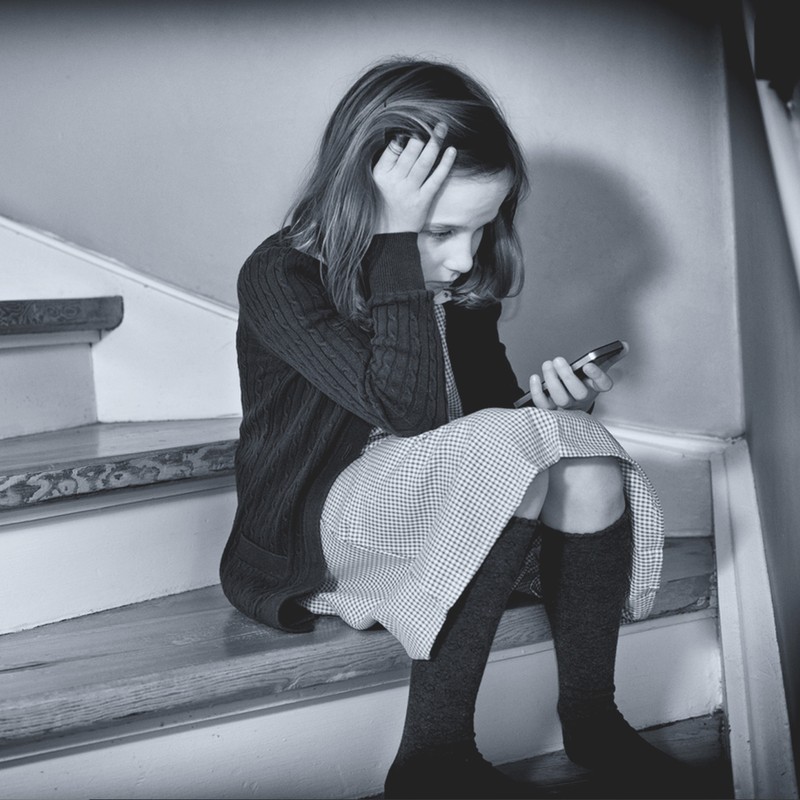Parenting 101: Bullying
The impacts on health, self-esteem and performance are significant. As mothers, we naturally worry about our child being a victim of bullying and when it does happen, we feel sick to the stomach about the harm it is causing our child. We sat down with parenting coach and director of Parent 4 Success, Elizabeth O’Shea to find out how to best to tackle bullying.
Firstly, how do you define bullying?
Bullying is the use of force, threat, or coercion to abuse, intimidate or aggressively dominate others. The behaviour is often repeated and habitual. Behaviours used to assert such domination can include verbal harassment or threat, physical assault or coercion, and such acts may be directed repeatedly towards particular targets.
If you feel your child is being bullied in school, what are the steps you take?
First and foremost, you need to talk to your child and try and empower them. Being a victim of bullying can often make your child feel like a victim, so approach the subject slowly and with caution. Don’t go in with guns blazing because you’re angry and upset for your own child’s suffering. This will give the impression that your son/daughter has done something wrong. The boundaries can sometimes be a bit blurred, so empathise with your child. Find out exactly what has happened and document everything.
How is it best to handle bullying?
Put your child in the driving seat. Ask your child if he/she would feel comfortable approaching the bully’s parents and/or the school and what would be his/her preference. If you speak to the school, find a teacher that your child would be happy to talk to openly and comfortably with. They need to feel safe and understood both in and out of school.
What are the best coping mechanisms a parent can teach a child?
As a parent, you’re responsible for helping to handle the bullying that is happening to your child and support them in every step of the way. Involve the child, make them feel empowered. If you suspect your child is at physical risk or harm, you must tell the school immediately. But don’t hide this from your child. Explain to your child that the school needs to know because it can cause his/her bodily harm.
How do you treat a child that is being bullied, differently?
There are simple tools you can teach your child which will also benefit them in their adult life too. For example, stand confidentially, always make eye contact, look forward, sound assertive, teach your child not to look afraid. All these skills will give an air of confidence and it’s less likely he/she will become a victim of bullying as a result. Teaching your child to be streetwise is also an important factor. They need to feel safe and confident in their surroundings.
Why do some children become bullies? Is there a reasoning behind it?
It’s important you explain to your child, why bullies act how they do. Bullies bully to make themselves feel better and bigger than their victim. Putting another child down makes them feel better. Perhaps there is something going on in the bully’s life that is a catalyst for his/her behaviour. Perhaps their feeling insecure or even jealous of the person they’re bullying. Usually, they want to gain control. Bullies are often victims themselves of bullying. They are re-enacting the actions that have been done to them. Often, they may not understand the difference between right and wrong, they don’t realise their behaviour isn’t normal as they may have suffered bullying in the hands of a parent or an older sibling. Helping your child identify the struggles the bully may be going through and the reasoning behind their cruel behaviour, will also empower your child.
What about cyber bullying? Isn't it harder to detect and to prevent?
Cyber bullying continues to be one of the biggest challenges facing young people. Online abuse is only growing, so teaching children to be private is crucial. They need to be aware that they are giving away personal details online without realising it. For instance, their school uniform, their birth date, their location. A good idea is to place on a wall a checklist of things for your child/ren to look out for when using their Ipad, TV, Laptop etc. By having these pointers in place, the child will feel more powerful about how to deal with any vulnerable online situation.
1. Tell an adult – It can be very upsetting for children to be bullied through a screen. They may no longer feel safe in their home environment as a result. Encourage them to tell an adult as soon as they feel vulnerable.
2. Save the evidence – Whether you screen shot a phone, take a picture of the TV with the bullying evidence or similar, record everything so dates, times, conversations can all be traced back easily and of course reported as evidence too.
3. Don’t ever respond to a message – Teach your child to ignore any bullying messages. As soon as your child responds, the bully knows you’ve read his/her nasty comments and will most likely continue the conversation with even more abuse if your child replies.
4. Log out – Quite simply your child will need time to calm down and take their mind off what they have read/seen, so take them out of the scenario and go and do something to cheer them up instead.
5. Is it personal? – If the bully attends the same school child or is familiar with your child, report it to the school or approach the parent direct. If your child doesn’t know the person on the other end of the screen, so to speak, ask your provider to report or block the person immediately.
Does age play a role in the way you get your child to overcome bullying?
A child often gets bullied between the ages of 8-12 years. Boys usually take a physical approach while girls are more verbal. Generally, when a child matures and gets more judgemental and confident with who they are, bullying declines.
How do you deal with physical bullying?
Teaching your child not to fight back is crucial as this not only prepares them for later life but also teaches them muscle-memory and how to deal with the situation in hand. A good coping mechanism is to do small roleplays that teaches your child the best way to respond to violence in a non-physical way. It’s important to emphasise that hitting back will get them in as much trouble as the bully, especially in school. If the physical bullying happens outside of school and your child feels threatened, teach your child to move (fast) to a populated area and shout “fire” rather than “help”, more people will react and turn their heads for fire than if they hear the word help.
For more advice on how to teach your child ways to prevent, reduce or stop bullying, buy Elizabeth’s 10 Steps To Bully Proof Your Child, £49 video, which is a summary of all the things Elizabeth has learned and taught about dealing with bullying and keeping your child safe and happy. To contact Elizabeth direct, log on to Parent4Success.com
DISCLAIMER: We endeavour to always credit the correct original source of every image we use. If you think a credit may be incorrect, please contact us at info@sheerluxe.com.





/https%3A%2F%2Fsw18.sheerluxe.com%2Fsites%2Fsheerluxe%2Ffiles%2Fwebsite-images%2F2025%2F04%2Fnew-parenting-background-image.jpg?itok=rRrLkJpg)